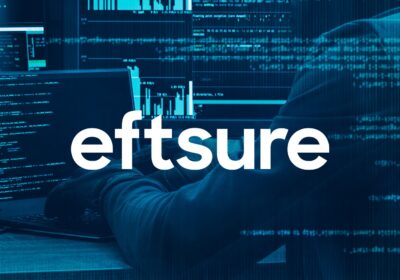
- Author: Michael Connory, CEO | Aphore
- Posted: February 11, 2025
The CFO’s Wake-Up Call > Why Ransomware Demands Your Attention
It begins with a call I received early on a Thursday morning, a CFO on the line, voice trembling.
Their business – an established Australian firm known for steady profits – was paralysed by an attack that none of them saw coming. Their email systems were disabled, critical financial data locked behind a digital ransom note, and an unsettling countdown timer ticking away.
“We never expected it would happen to us,” they said, “but it just did.”
The shock in their voice underscored a reality that has slipped past many executives: ransomware is no longer a distant threat but an active, disruptive force hitting Australian organisations of all sizes.
From my vantage point as CEO of Aphore, I’ve observed a staggering evolution in the way criminals operate. It’s not just about encrypting data anymore; sometimes they steal it first and demand payment to avoid leaking it on the dark web. Even more worrying is the increasing sophistication of these attacks. Criminal groups are using new tools and artificial intelligence to disguise malicious code and target victims with pinpoint accuracy. A few years ago, you might have relied on security filters or staff training to stop basic phishing attempts. Today, these criminals can tailor emails so convincingly that even seasoned professionals second-guess themselves.
Our research at Aphore, aligned with data from the Australian Signals Directorate (ASD), indicates that 18% of organisations in Australia will likely be targeted by ransomware in the next twelve months—and that an overwhelming 94% will face some form of cyberattack. Those figures are sobering, but they’re also an urgent call to action: If we don’t prepare, we risk facing the same struggles that CFOs across the country have already experienced. And trust me, I’ve spoken to many of them.
Ransomware is a CFO Issue—Not Just an IT Problem
In most of those conversations, the CFO describes how the initial response—often led by the CEO or CIO—was to “shut everything down.” From a purely technical perspective, that might seem logical: you isolate the threat before it spreads further. But for finance leaders, this instant shutdown can trigger severe implications. The moment essential systems go dark, you can’t pay employees or suppliers, you can’t issue invoices, you can’t process refunds, and the business grinds to a halt.
One CFO told me bluntly: “We can ride out maybe a day or two offline, but once we cross into day three, the fallout intensifies exponentially.” Customers look elsewhere, key contracts slip into jeopardy, and your reputation deteriorates with every passing hour.
These dangers multiply for ASX-listed companies, which are obligated to report material incidents immediately. A sudden halt can mean disclosing a cyberattack to the market, triggering a trading suspension and potentially spooking investors. Share prices can—and often do—drop 15–20% or more following news of a major breach. We’ve seen it happen in recent years with organisations like Medibank and Optus, where high-profile data breaches resulted in sharp declines in share value. Toll Group and Nine Entertainment also suffered major disruptions from cyberattacks, with recovery taking weeks, if not months.
These events send a clear message: once a cyberattack is public knowledge, it’s no longer just an IT issue—it’s a crisis that affects revenue, market perception, and shareholder confidence.
The Question of Paying a Ransom
The question of paying a ransom has become one of the thorniest dilemmas CFOs face.
Ethically, nobody wants to hand money to criminals. Legally, the situation is increasingly complex with government regulations tightening. Yet from a strict financial perspective, a CFO may realise that paying a ransom—while distasteful—could well be the cheapest path to restoring systems and preventing further damage.
In our experience, many criminal groups have even cultivated a “professional” reputation; they understand that if they fail to deliver on decryption or refuse to delete stolen data, future victims will be less likely to pay. As perverse as it sounds, these groups rely on maintaining a certain level of trust in their criminal marketplace.
Boards often balk at the idea of paying criminals. But as one finance leader remarked, “If the alternative is tens of millions of dollars in revenue lost from extended downtime, a ransom of a few million might be the lesser evil.” Some CFOs compare it to hostage negotiations: deeply unpalatable, but occasionally the pragmatic route to salvaging an otherwise dire situation.
However, it’s critical for the CFO to be involved in that discussion from day one, rather than being informed after decisions have already been made. That’s also true for insurance arrangements—cyber insurance can be helpful, but the fine print often excludes ransom payments or only covers portions of the potential financial fallout. Waiting until you’re in the throes of a crisis to discover these gaps can be a devastating surprise.
As criminals evolve, the odds of being targeted continue to climb. But a ransomware attempt doesn’t have to mean certain defeat. What it does require is coordination among leadership, with the CFO at the table helping to guide high-stakes decisions. There’s a reason many experts now say that ransomware is as much a risk-management concern as it is a technical one. Shutting everything down reflexively might feel safe from an IT perspective, but it can strangle the business if nobody is measuring the financial implications. Similarly, refusing to pay under any circumstances might be the right ethical stance, yet if it spirals into catastrophic downtime, the CFO needs to model the long-term costs and help leadership see the bigger picture.
The research team at Aphore have seen time and again that CFOs who prepare in advance navigate ransomware incidents with minimal financial and reputational damage. Those who don’t? They’re left scrambling, trying to assess risk in real-time, often with incomplete information.
At Aphore, we recommend that CFOs take the following three immediate actions to protect their organisations:
1. Integrate Cyber Risk into Financial & Business Continuity Planning
- Treat cyber risk with the same urgency and structure as liquidity risk or supply chain disruptions.
- Conduct financial stress tests to model the impact of extended downtime on revenue, cash flow, and contractual obligations.
- Ensure compliance with Australian Accounting Standards (AAS) and ASIC regulations for cyber risk reporting.
2. Ensure Realistic Backup & Restoration Strategies Exist and Are Tested
- Do not assume backups work—CFOs must demand regular testing and restoration drills.
- Ask IT: When were backups last tested? How long does full system restoration take? Are backups segmented to prevent ransomware corruption?
- Align insurance policies with realistic recovery timelines—most policies do not cover full losses.
3. Clarify Ransomware Payment Protocols Before an Attack Occurs
- Define clear thresholds for ransom payments—who has the authority to approve payment? Under what conditions?
- Review cyber insurance policies in detail—many exclude ransom payments or only partially cover costs.
- Have emergency liquidity plans in place to cover potential ransom, legal fees, forensic recovery, and PR crisis management.
The CFO’s Role in Cyber Resilience
Ransomware is not just an IT crisis—it is a financial crisis, a governance challenge, and a market risk.
The CFO is the first line of defence in ensuring that the organisation’s financial stability and shareholder value are protected. Those who plan ahead will reduce financial exposure, ensure faster recovery, and make informed decisions if a cyberattack occurs.
It’s also obvious that the best-prepared CFOs demand answers today, rather than waiting for that fateful 6:00 a.m. phone call. Ransomware is a business crisis before it is a technical one, and the CFO’s role is crucial in ensuring the organisation survives—not just in recovering from the attack, but in protecting long-term financial stability and reputation.
To learn more about Aphore and how they assist CFOs in Cyber protection, visit > www.Aphore.com







